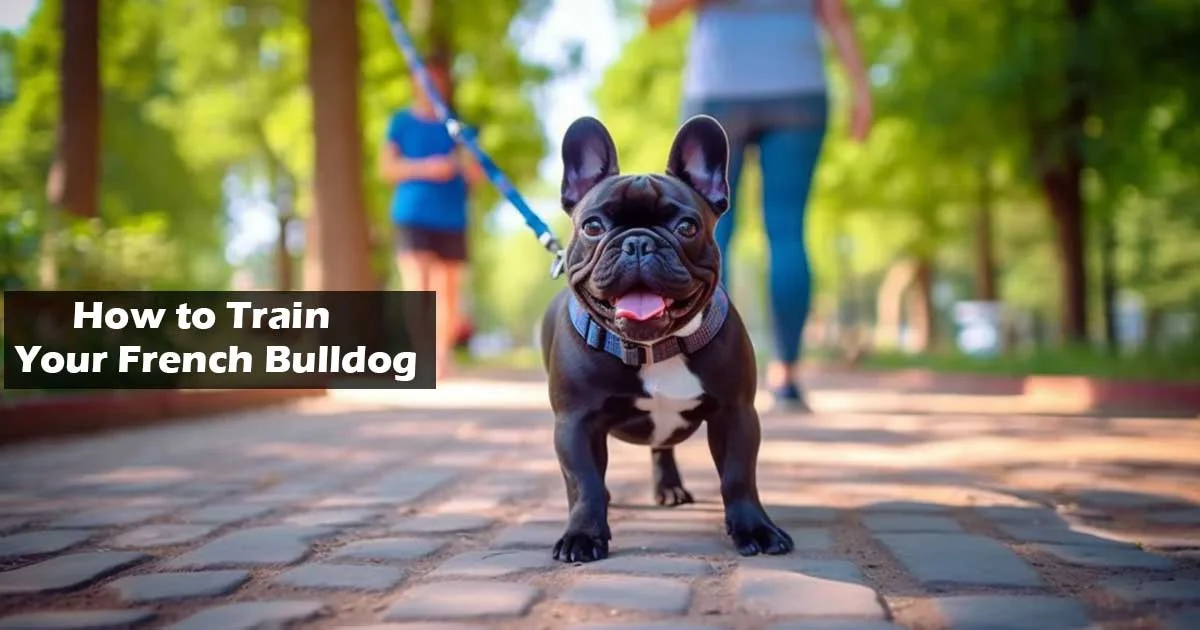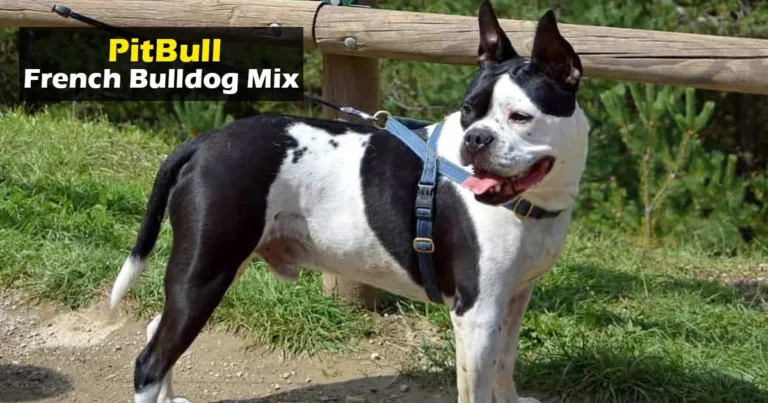French Bulldog Training: Complete Guide for Success
French Bulldogs, with their adorable appearance and quirky charm, are a favorite among dog lovers. However, training these compact canines requires specific knowledge due to their stubborn streak. Understanding their nature is the first step in setting realistic expectations for training.
Despite their occasional resistance, French Bulldogs are highly intelligent and eager to please. Their unique mix of independence and affection can make training a rewarding experience when approached correctly. The goal is not to dominate but to motivate them with positive experiences.
Consistency and patience are key to success. From basic commands to house training, a structured routine will benefit both dog and owner. Whether you’re starting with a puppy or an older rescue, tailored techniques help lay a strong behavioral foundation.
- French Bulldogs are intelligent but strong-willed
- Positive reinforcement yields better results than punishment
- Tools that make training safe, fun, and effective
- Start obedience training between 8–10 weeks
- Use 5–10 minute sessions to maintain focus
- Reward good behavior instantly
Getting started with French Bulldog training means setting clear goals and preparing for a journey built on trust and rewards.
Best Age to Start Training a French Bulldog
Training should begin as early as 8 weeks of age. This is when French Bulldog puppies are most impressionable and eager to learn new behaviors. Early exposure to commands and social environments sets the tone for long-term behavior.
Puppies learn best in short, structured sessions filled with praise and treats. Crate training and potty routines are easier to establish when started young. Avoid overwhelming them with too many commands; instead, focus on one skill at a time.
Older French Bulldogs can also be trained, though they may take longer to adjust. With patience, even rescues can learn basic obedience and house rules. It’s never too late to start training, but earlier is always better.
- Begin basic training by 8–10 weeks old
- Keep lessons short and consistent: 5–10 minutes daily
Starting early helps your Frenchie grow into a well-mannered, confident companion.
French Bulldog Behavior and Temperament
French Bulldogs are affectionate and people-oriented, but they also have a mind of their own. Their behavior is shaped by early socialization, training consistency, and environment. Knowing their temperament helps in choosing the right training methods.
They are not aggressive by nature but can become anxious or overly excited if not properly trained. Their small size doesn’t prevent them from displaying big emotions, especially when faced with unfamiliar people or pets.
Due to their sensitive nature, harsh corrections can do more harm than good. Instead, focus on gentle guidance and reward-based approaches. Reading their body language will help you gauge how they’re responding to training sessions.
- Affectionate yet independent
- Respond best to calm, confident leadership
Understanding your Frenchie’s behavior is essential for building a training approach that works with their temperament, not against it.
Step-by-Step Obedience Training for French Bulldogs
Obedience training begins with simple commands like “sit,” “stay,” “come,” and “leave it.” These foundational cues form the base of all advanced training. To set your Frenchie up for success, always start in a quiet, distraction-free space where they can focus without stress.
Once your dog consistently responds in a calm environment, gradually introduce mild distractions—like background sounds or a new location. Use high-value treats and lots of verbal praise to celebrate success. Consistency and repetition are critical for reinforcing behavior and building long-term habits.
It’s also essential that everyone in your household uses the same cues, tone, and gestures. Mixed signals can confuse your Frenchie and slow progress. Daily sessions of just 5–10 minutes will not only improve obedience but also strengthen your bond and improve your dog’s focus.
- Keep commands short and clear
- Practice daily for short intervals
- Use hand signals for visual learners
- Teach one command at a time
- Use clear verbal cues and hand signals
A solid obedience foundation makes it easier to manage your Frenchie in any situation.
Potty Training a French Bulldog Puppy
Potty training your Frenchie requires consistency, timing, and patience. Establish a regular schedule for meals and potty breaks to set expectations.
Praise your puppy immediately after they eliminate outside. Avoid punishment for accidents; instead, clean the area thoroughly to eliminate lingering scents that might encourage repeats.
Crate training is an effective aid for potty training. Dogs naturally avoid soiling their sleeping area, making the crate a helpful tool to control habits.
- Stick to a regular potty schedule
- Take your pup out after meals or naps
- Use the same outdoor spot for consistency
- Take them out first thing in the morning, after meals, and before bed
- Use the same spot outdoors to reinforce behavior
Stick with the routine, and your Frenchie will learn where to go and when to go.
Crate Training Your French Bulldog
Crate training helps with housebreaking and provides your dog with a secure place to relax. Choose a crate large enough for your dog to stand and turn around, but not big enough to potty in one corner.
Introduce the crate gradually by placing treats or toys inside. Encourage your dog to enter willingly and avoid using the crate for punishment. Start with short sessions and gradually increase the duration.
Make the crate part of your daily routine. Your dog will come to see it as their safe space, helping reduce anxiety during travel or when left alone.
- Never force your dog into the crate
- Cover crate partially to create a den-like feel
- Cover partially for a den-like feel
- Incorporate into daily routines
- Use it for quiet time, not discipline
Used correctly, a crate is a powerful training and management tool.
Leash and Harness Training for French Bulldogs
French Bulldogs benefit from early leash exposure. Begin indoors by letting them wear a lightweight harness for short periods. Gradually attach the leash and allow them to get used to the feeling.
Encourage loose-leash walking by rewarding your dog for walking calmly beside you. If they pull, stop moving and wait until they return to your side. Consistency teaches them that pulling gets them nowhere.
Choose a well-fitting harness designed for brachycephalic (flat-faced) breeds to avoid pressure on their throat and airways.
- Use short walks to build leash manners
- Bring high-value treats on walks for reward-based learning
- Avoid collars—use no-pull harnesses
- Keep sessions short and positive
With practice, leash time becomes enjoyable and stress-free for both of you.
Socialization Techniques for French Bulldogs
Socialization helps prevent fear-based behaviors. Begin early by exposing your Frenchie to different people, pets, sounds, and environments in a controlled manner.
Create positive associations by rewarding calm behavior during new experiences. Avoid overwhelming your dog—introduce stimuli gradually and let them explore at their own pace.
Group puppy classes, dog-friendly stores, and walks in busy parks are excellent opportunities for socialization.
- Watch for signs of stress and take breaks
- Use treats to reinforce confidence during exposure
- Start early—between 8–16 weeks is best
- Use treats during social interactions
- Monitor body language for stress signs
Socialization builds a balanced, confident adult dog that’s a joy to have in any setting.
Common French Bulldog Behavior Problems
French Bulldogs may exhibit barking, chewing, digging, or separation anxiety when bored or under-stimulated. Understanding the root cause is the first step toward resolution.
Provide mental stimulation through puzzle toys, obedience drills, and physical activity. Address unwanted behaviors immediately and redirect with acceptable alternatives.
Never yell or hit your dog—such responses can worsen behavioral issues and damage trust.
- Biting and chewing often result from teething or anxiety
- Use firm commands and redirection instead of punishment
- Chewing often signals teething or stress
- Barking can result from lack of stimulation
- Digging may be instinctual or boredom-driven
Addressing behavior problems early makes them easier to correct and helps maintain a harmonious home.
Training Adult and Rescue French Bulldogs
Training older or rescue French Bulldogs may take more time, but it’s entirely possible with patience and structure. They may have ingrained habits or past trauma to overcome.
Establish trust before introducing commands. Use positive reinforcement to encourage small successes and never rush progress. Short, consistent sessions work best.
Be prepared to untrain bad habits before teaching new ones. Focus on creating a calm, predictable environment.
- Use consistent routines to reduce anxiety
- Avoid high-pressure situations early on
- Use soft voices and calm body language
- Keep training goals small and achievable
- Use repetition to build predictability
Every Frenchie can learn—age is no barrier when training is handled with empathy.
Tools and Equipment for French Bulldog Training
Use soft, bite-sized treats to maintain engagement during training. Clickers, harnesses, and puzzle toys also support your training goals.
Choose flat, no-pull harnesses that are gentle on your Frenchie’s chest. Crates, baby gates, and leash couplers can help manage your dog in various environments.
Avoid choke collars or prong devices, which can injure your Frenchie’s sensitive neck and worsen behavior.
- Use positive-only tools like clickers and treat pouches
- Invest in breathable, padded harnesses
- Use small, soft treats for training
- Clickers improve communication timing
- Choose padded, flat harnesses for walks
The right tools make training more effective, safe, and enjoyable for both pet and owner.
Conclusion
Training a French Bulldog requires more than just commands—it’s about understanding their unique personality, building trust, and staying consistent. From puppyhood to adulthood, whether you’re housebreaking or teaching leash manners, a positive and patient approach always delivers better results.
By starting early, using reward-based techniques, and addressing behavior challenges with empathy, you’ll create a well-mannered and confident companion. Crate training, socialization, and structured routines are powerful tools when used correctly and consistently.




